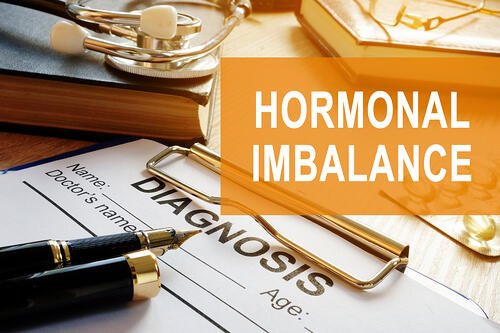
Understanding Hormonal Imbalances
Adjusting to hormone changes can be challenging, regardless of what age you are. For most women, mood swings due to hormones can take you on a rollercoaster ride that starts when you are a pre-teen and lasts throughout your life. By the time you think that you have a handle on your hormonal ups and downs, your body decides to trick you with an influx of different hormones, on its mission to communicate with other parts of the body.

There are four different types of hormones that serve as chemical messengers, and ultimately affect a variety of aspects relating to your overall health. Estrogen, testosterone, insulin, and adrenaline are the four messengers that are emitted from the various glands and organs including the pituitary, adrenals, thyroid, ovaries, and pancreas. Like a well-oiled machine, the different parts of your endocrine system work together to maintain control of the level of hormones that are circulating throughout your body at any given time. If one of these pieces of the puzzle is even partly out of balance, it can lead to major health problems.
The pituitary gland contains two different tissue types. One is the anterior pituitary, which harmonizes and releases basic hormones, consisting of growth hormones that aid in development and prolactin, the hormone that arouses the production of milk after childbirth. The posterior pituitary gland emits neurohormones which are created in the hypothalamus. These hormones store and secrete oxytocin and vasopressin, before they are released into the bloodstream. Vasopressin is converted into Arginine Vasopressin (AVP), which plays a major role in sexual motivation and behavior, pair bonding, and maternal responses to stress.
Hormonal imbalances can be the result of several different factors including medical history, stress levels, genetics, environmental toxins, and diet. Some of the issues that can lead to these imbalances are:
∙ Obesity. The hormone leptin is responsible for managing a person’s appetite and how the body stores fat. Because it is produced by fat cells, leptin levels tend to be more elevated in those who are obese, resulting in a lessened sensitivity to the hormone, causing this person to be less full after a meal.
∙ Gut issues. If you lack the necessary probiotic bacteria in your belly, you are more prone to diabetes and obesity because this often leads to inflammation along the lining of the intestinal wall, which can affect every aspect of your health.
∙ Sedentary lifestyle and poor diet. Activity levels and diet are directly related to the levels of inflammation in your body. Added inflammation, will naturally offset your hormones and create an imbalance.
∙ Toxicity. The more you are exposed to toxins, the more likely you are to have an imbalance. Exposure to pesticides, viruses, alcohol, and cigarettes will up your chances of taking a toll on your hormones.
∙ Stress and sleep. When our bodies are undergoing a lot of stress and we aren’t getting an adequate amount of sleep, we are more likely to suffer from an imbalance.
Ready to make a change in your life? Let's talk CLICK HERE

